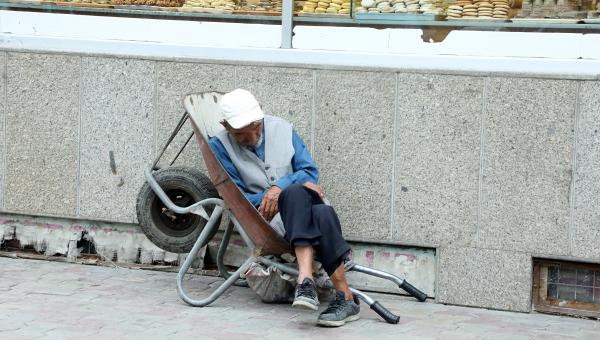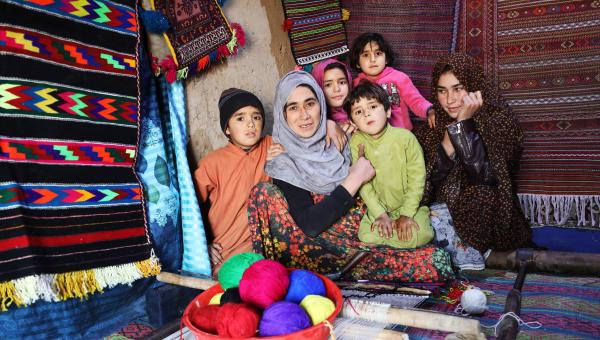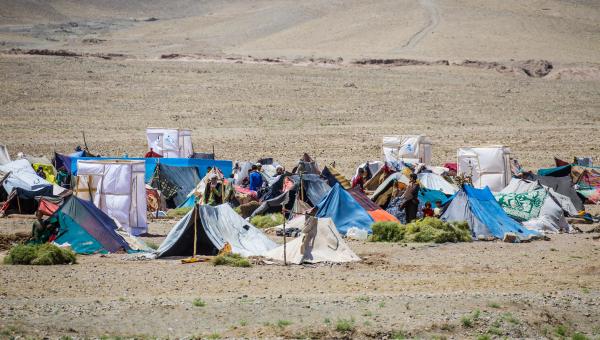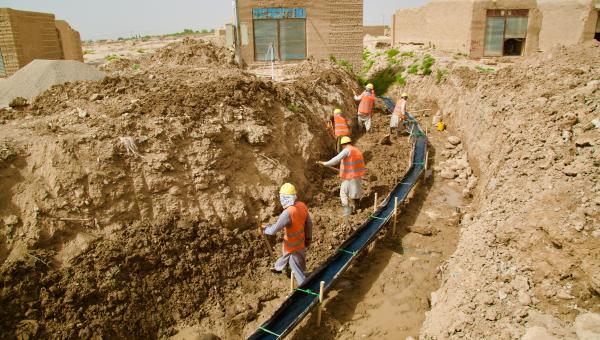Anti-Corruption, Transparency, Integrity & Openness (ACTION) Project
Overview
Corruption in Afghanistan is an acute driver of insecurity and public mistrust in state institutions, affecting nearly every aspect of daily life for Afghan civilians. The Rule of Law Sector, including Security and Justice institutions, requires substantial enhancement in transparency and integrity to decrease corruption levels.
Over the past few years, the Government of Afghanistan has advanced significant anti-corruption reforms and reshaped the institutional setting to enhance the effectiveness of the fight against corruption. However, there is still need for support.
The Afghanistan Anti-Corruption, Transparency, Integrity, and Openness (ACTION) Project is a comprehensive initiative that aims to support institutional (supply) and civilian engagement (demand) to boost public trust and transparency in Afghan Security and Justice institutions. On the institutional side, the project supports the government's flagship anti-corruption initiative, the Anti-Corruption Justice Centre (ACJC), enhancing its capability to address high-level corruption cases.
On the demand side, the project will work with civil society to improve public trust and repair the social contract between Afghan civilians and the state.
Using a participatory and evidence-based approach, the project addresses specific challenges at institutional, technical, and community levels, reshaping anti-corruption incentives.
The project will support Afghan counterparts to reform processes, build capacity, and engage the public. The project's outputs include an improved ACJC with enhanced technical and operational capacities to adjudicate corruption cases; and empowered non-state actors and community groups, including women and youth promoting transparency, accountability, and integrity in the Security and Justice Sectors.
And the second output of non-state can better promote transparency, accountability and integrity in the Security and Justice Sectors.
Due to the fall of the Islamic Republic of Afghanistan government and the political situation in the country, the project faced unavoidable implementation delays and thus resorted to using other credible means to continue its operation, including strengthening partnerships with CSOS, local communities, media, academia, and the private sector. Some outputs were also not completed following the regime change.
Objectives
The overall goal of the Afghanistan Anti-Corruption, Transparency, Integrity, and Openness (ACTION) Project is to support the institutional (supply) and civilian engagement (demand) sides to boost public trust and transparency in the Afghan Security and Justice institutions. On the government institutions, the project will focus its support to the flagship initiative of the government to combat corruption, namely the Anti-Corruption Justice Center (ACJC) to enhance their capacity to address high-level corruption cases. On the demand side, the project will work with civil society to improve public trust and repair the social contract between Afghan civilians and the state.
Major Achievements
- Implemented capacity building activities for ACJC, successfully incorporating 11 out of 28 training modules identified through an early-stage training need assessment.
- Successfully implemented 15 small grants projects aimed at building trust between the Afghan community and the state. These projects mobilized local community to fight corruption and conduct community-based monitoring of health facilities and social audit of service deliveries.
- Conducted eight capacity building trainings for 23 CSOs representatives, including four females. The training covered proposal development, grant orientation, anti-corruption methodologies and approaches, monitoring and evaluation and financial management.
- Local journalists produced 84 investigative reports, uncovering corruption, fraud, and abuse of power in 17 provinces.
Related Materials
Impact
Relevant Content

 Locations
Locations




